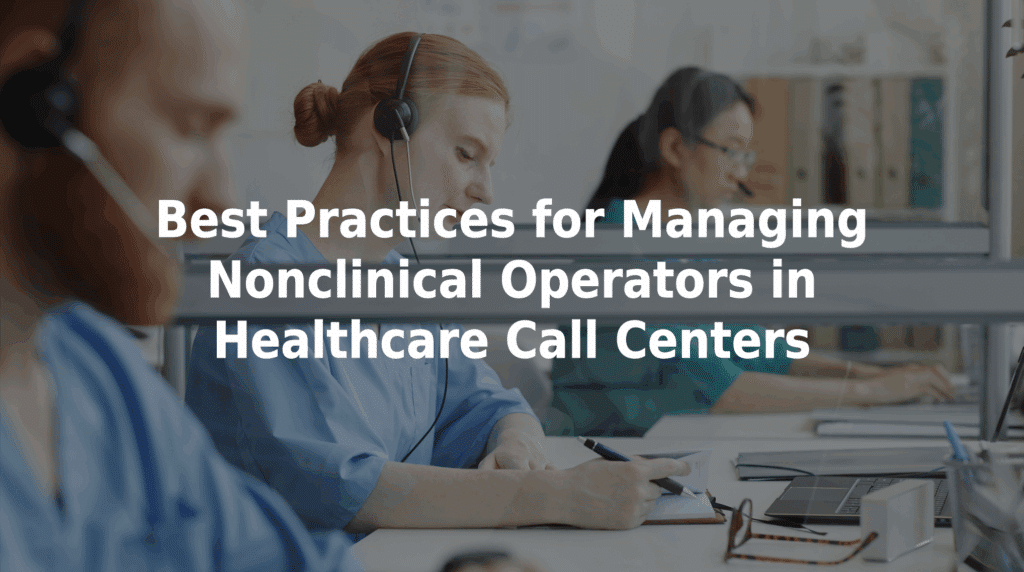Best Practices for Managing Nonclinical Operators in Healthcare Call Centers
Healthcare call centers are the front lines of patient communication, handling everything from appointment requests to urgent symptom reports. Effective management of these teams is critical — especially when it comes to accurate documentation that triage nurses can use to establish patient urgency. This is why understanding the best practices for managing nonclinical operators in healthcare call centers is essential for patient safety and operational success.
The Importance of Nonclinical Operator Performance
Nonclinical operators may not make clinical decisions, but their documentation sets the stage for care. If a patient’s symptoms are misunderstood, incorrectly documented, or misrouted, it can delay treatment or lead to adverse outcomes. HIPAA Journal highlights one study that found “80% of serious medical errors were the result of miscommunication,” which is why healthcare organizations must equip front-line staff with the right tools, training, and oversight.
Challenges in Managing Nonclinical Healthcare Call Center Staff
- Variable Skill Levels: Operators often come from non-medical backgrounds, which can result in inconsistent message quality.
- High Call Volumes: Busy shifts can lead to rushed or incomplete documentation.
- Lack of Real-Time Guidance: Without support tools, operators may miss important follow-up questions.
- Unclear Escalation Paths: Operators may not always know when a message needs immediate attention from clinical staff.
- Training Gaps: Initial training may not be reinforced regularly, leading to inconsistencies over time.
Best Practices for Managing Nonclinical Operators
Implement Standardized Intake Protocols
Use structured message templates that guide operators to collect consistent and complete information.
Provide Patients a With Real-Time Secure Chat
Patients can use MedMessage Automate to submit their medical messages that are complete and accurate thanks to this AI solution’s intuitive prompts.
Conduct Routine QA Reviews
Monitor a sample of messages weekly to identify trends, nonclinical training needs, and areas for process improvement.
Offer Ongoing Scenario-Based Training
Use real-life patient examples to train staff on symptoms that require escalation and reinforce protocols for safety.
Centralize Communication Workflows
Ensure operators use a single, secure platform for message documentation and routing to eliminate confusion or information loss.
Case in Point: A Stroke Almost Overlooked
A 72-year-old patient contacted her doctor’s answering service about a vertigo medication refill. The operator forwarded the request as routine. A nurse manager reviewed the message and decided to follow up. She discovered that the patient was also experiencing a headache, dizziness, and right-arm weakness — signs of a potential stroke. The nurse manager urged the patient to call 911 immediately.
This case shows how easy it is for critical details to be missed when operators lack support tools and clinical awareness. A guided intake tool could have caught those symptoms much earlier.
How TriageLogic’s Solutions Support Effective Call Center Management
TriageLogic’s MedMessage Automate offers a modern self-service channel, allowing patients to input their concerns through a secure chatbot. Using proprietary algorithms and designed by doctors, it ensures that all necessary information is gathered and routed appropriately for accurate medical intake and better health outcomes.
MedMessage Automate empowers healthcare managers to uphold best practices, improve staff performance, and safeguard patient care — all without increasing administrative overhead.
Empower Your Patients
Ready to improve message accuracy and reduce liability in your call center? Contact us today to learn more about a program!

